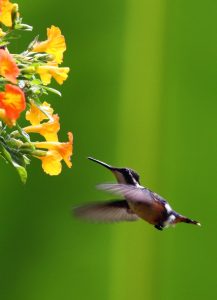“Seeing wildlife – in real life, articles or documentaries made by people who had to travel – is a good way of convincing people to change wider lifestyle habits.”
“Travelling to a destination as a tourist whilst trying to have a positive impact on the environment, and respecting a destination’s culture, environment, and local communities.”
.
ECO-TOURISM AROUND THE WORLD:
There are clearly conflicts when it comes to getting in planes to save the planet, as reported in the i-newspaper recently:

Searching for rare and endangered hummingbirds has led the British nature expert Jon Dunn across the Americas – but his journeys make him question the ethics of flying, he tells Etan Smallman
So entranced by the creatures was British naturalist Jon Dunn that he devoted himself to a voyage across their global range, taking him from Alaska to the southern tip of Argentina. His new book detailing the avian odyssey, The Glitter in the Green, contains almost 300 pages of intricate, adoring and poetic descriptions as sumptuous as the birds’ kaleidoscopic wings…
How, I ask, would he feel if his readers were inspired to follow in his footsteps, with all the plane journeys that would involve? “I think it’s unlikely, but I would feel very uneasy about it,” says Dunn, who hesitates because of what he saw in the Peruvian Andes.
“It was only when some of the locals realised that birdwatchers were prepared to come to this particular valley that they started to actually place a value in the bird itself and so conservation projects started locally at grassroots level to conserve its habitat and return some of the agricultural land back to something where the bird could prosper. But reconciling that with the carbon involved to actually travel to see things… it’s a paradox which I’m not sure I have an answer to.”
“I often surround myself in a shroud of guilt for travelling as frequently as I do, and for so vastly increasing my carbon footprint,” writes Alena Ebeling-Schuld, a conservation photographer in Canada. “People regularly shame me for travelling by air when I simultaneously advocate so fiercely for nature, questioning my integrity as a conservation scientist and an eco-activist.” …
But she points out that ecotourism helps many species by raising funds to stop human encroachment on animals’ habitats and to recruit rangers from local communities. “If we stop flying completely, many natural spaces may quickly lose protection or even disappear,” she argues. She adds that seeing wildlife – in real life, articles or documentaries made by people who had to travel – is a good way of convincing people to change wider lifestyle habits. “Even cutting down travel by one flight a year can have a huge impact.”
.
RESPONSIBLE TOURISM IN SIDMOUTH:
What about ecotourism and the Sid Valley?
We have more ‘environmentally-friendly’ options for tourists:
Sid Valley Ring – Vision Group for Sidmouth
And, indeed, Sidmouth is pushing itself as a place for responsible travellers to enjoy:
Sidmouth and the Devon Coast walking holiday | Responsible Travel
Then there is the SCCH:
Sidmouth Coastal Community Hub devises, sources, and delivers projects that focus on community engagement, events, local economic growth, the coast, education, creativity, the arts, sustainability, and responsible tourism.
Who We Are – Sidmouth Coastal Community Hub CIC
They put together a very impressive report a couple of years back:
There are certainly natural attractions to be enjoyed by residents and visitors alike:
The return of bluefin tuna to Lyme Bay – Vision Group for Sidmouth
And perhaps more can be done:
‘Fish ladder needed to help river’s salmon and trout’ | Sidmouth Herald
.
SUSTAINABLE TOURISM: AN OXYMORON?
Ultimately, we must ask how to ensure the numbers of tourists does not impact on the natural wonders they come to enjoy:
Can the tourist industry be ‘sustainable’?
“If we continue to travel as unsustainably as we always have, we will destroy the world we live in. Something must be done and this is where sustainable tourism comes in; this is defined as a form of tourism that involves travelling to a destination as a tourist whilst trying to have a positive impact on the environment, and respecting a destination’s culture, environment, and local communities.”
Can the tourist industry be ‘sustainable’? – Vision Group for Sidmouth